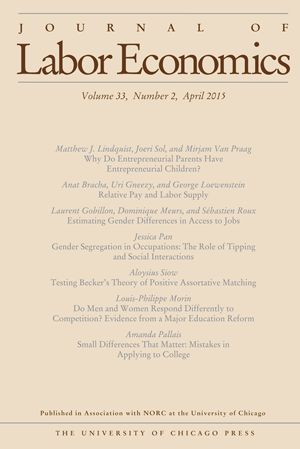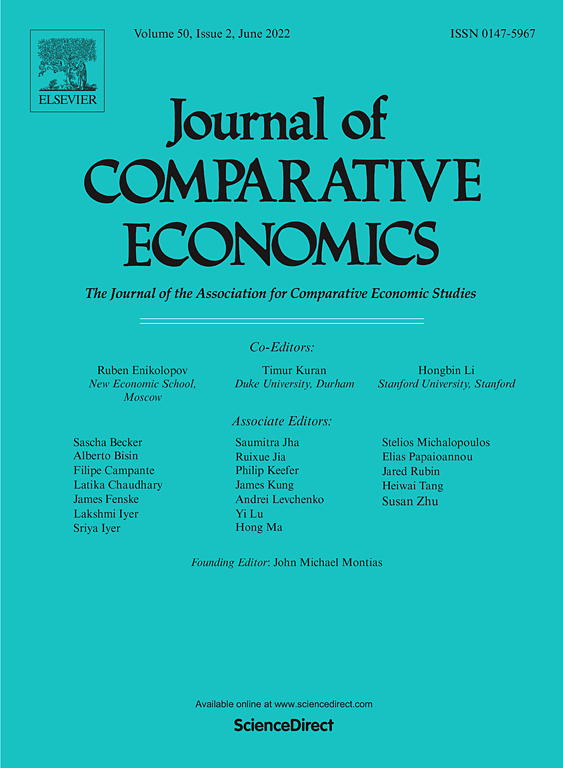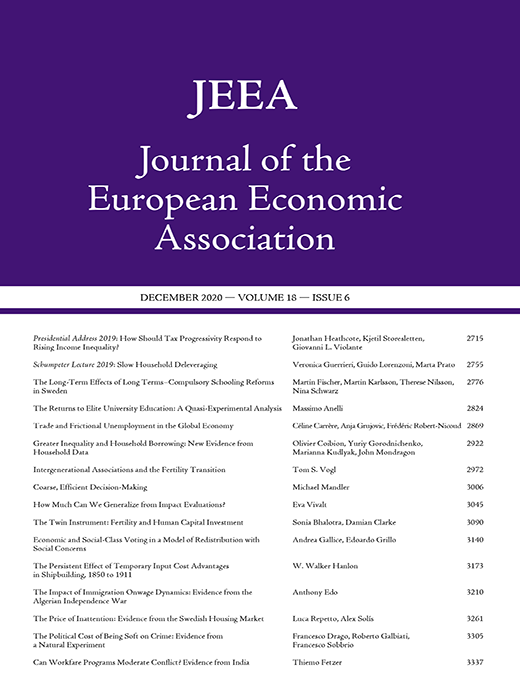
Industry Mix, Local Labor Markets, and the Incidence of Trade Shocks
in: Journal of Labor Economics, No. 3, 2024
Abstract
We analyze how skill transferability and the local industry mix affect the adjustment costs of workers hit by a trade shock. Using German administrative data and novel measures of economic distance we construct an index of labor market absorptiveness that captures the degree to which workers from a particular industry are able to reallocate into other jobs. Among manufacturing workers, we find that the earnings loss associated with increased import exposure is much higher for those who live in the least absorptive regions. We conclude that the local industry composition plays an important role in the adjustment processes of workers.

The East-West German Gap in Revenue Productivity: Just a Tale of Output Prices?
in: Journal of Comparative Economics, No. 3, 2022
Abstract
East German manufacturers’ revenue productivity is substantially below West German levels, even three decades after German unification. Using firm-product-level data with product quantities and prices, we analyze the role of product specialization and show that the prominent “extended work bench hypothesis” cannot explain these sustained productivity differences. Eastern firms specialize in simpler product varieties generating less consumer value and being manufactured with less or cheaper inputs. Yet, such specialization cannot explain the productivity gap because Eastern firms are physically less productive for given product prices. Hence, there is a genuine price-adjusted physical productivity disadvantage of Eastern compared to Western firms.

Explaining Wage Losses After Job Displacement: Employer Size and Lost Firm Wage Premiums
in: Journal of the European Economic Association, No. 5, 2021
Abstract
This paper investigates whether wage losses after job displacement are driven by lost firm wage premiums or worker productivity depreciations. We estimate losses in wages and firm wage premiums, the latter being measured as firm effects from a two-way fixed-effects wage decomposition. Using new German administrative data on displacements from small and large employers, we find that wage losses are to a large extent explained by losses in firm wage premiums and that premium losses are largely permanent. We show that losses strongly increase with pre-displacement employer size. This provides an explanation for large and persistent wage losses reported in previous displacement studies typically focusing on large employers, only.



